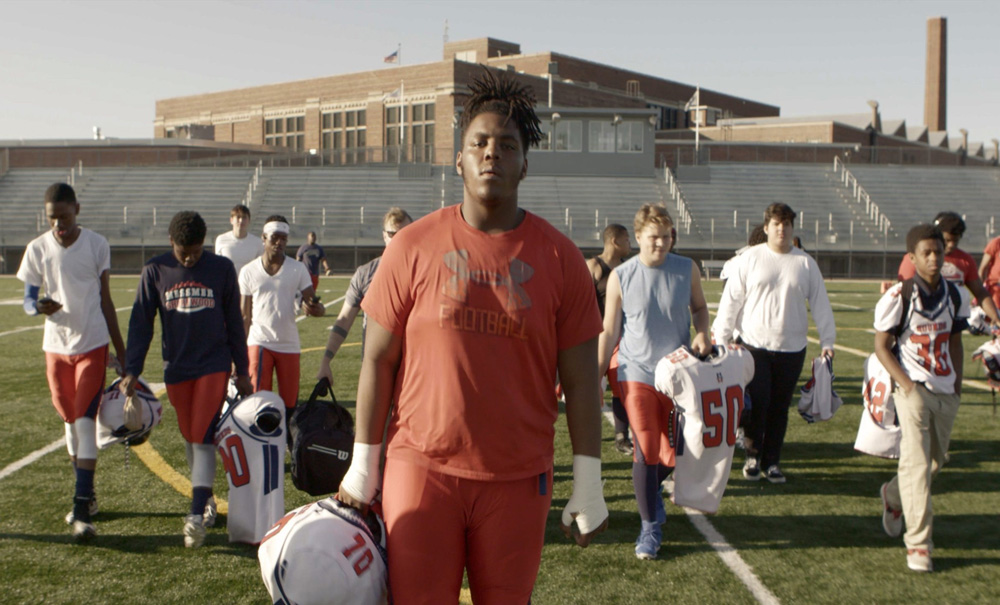“I think it’s harder for adults to cross boundaries than kids,” Liz Sharp-Curro says in “Messwood” as she looks over the half-full stands at the Shorewood High School football field. A clear gap separates the parents from Shorewood and from Messmer, a nearby high school that has combined its football program with Shorewood to field a team in a suburb of Milwaukee and while there’s a clear metaphor to be drawn from the fact that Shorewood is largely white and Messmer is majority Black, Sharp-Curro is pointing out everything else that’s been created by a racial divide when neither side is comfortable talking to the other, feeling as if there’s nothing in common even when their kids are playing on the same football team.
“Messwood” is as good a conversation starter as any as co-directors Emily Kuester and Brad Lichtenstein spend a year with the Messwood Greyhounds, a squad that’s been integrated since 2001, but hasn’t exactly brought a community together, even with a winning record. It isn’t just the fact that the team doesn’t cruise to victories following an undefeated season while Kuester and Lichtenstein are filming that makes “Messwood” resistant to easy narratives when as soon as the film begins the team’s tough-as-nails Coach Antoine Davis simply isn’t having it when asked about how race factors into team affairs, Bill Belichick-esque in his brusque response, “It’s football.” However, there is clearly plenty more to be addressed when there is such an obvious socioeconomic gap between the areas Messmer and Shorewood students hail from, a mere mile apart, but the difference between a 15-year-old inheriting their parents’ car or taking the bus.
Where the unease is coming from about ever discussing these things is somewhat embedded into the film’s fabric when only one of its four main student subjects – Max, Sharp-Curro’s son, is one of the white students from Shorewood, and has been a friend of Amarion, one of the students from Messmer, since elementary school, but when even within their longtime friendship, one is able to see how Amarion’s father left home before 10 never to return while Max’s parents got divorced yet his father returned to the house to keep his son’s confidence level high, the film doesn’t need explicit conversations to reflect how radically the cultures they’ve grown up in have shaped their lives. “Messwood” somewhat engages with the football season at hand, but wisely invests more in dipping in and out of the lives of Max, Amarion, Fred, a wide receiver who has dedicated himself to football after the death of his brother (at the expense of his school work, to his mother’s chagrin) and Piarus, a senior with a decent shot at a college scholarship.
Without leaning on the usual high school benchmarks or assuming that equality will take care of itself in a team sport naturally, “Messwood” opens up far more unusual avenues of consideration when Amarion’s mother starts to wonder if her son has spent too much time with Shorewood kids when he’s frustrated by their more modest home and Coach Davis, confronted with having his team called the “N-word” during games, sees football as the strongest response available to them. In spite of all that the game actually can provide, exemplified by the drive it clearly instilled in Coach Davis and giving talented players such as Piarus more to play for than glory for their team, it is refreshingly only part of a much larger picture in “Messwood” where much may be left unspoken, but every image is worth a thousand words.
“Messwood” will be available to watch online through the DOC NYC virtual platform from November 15th through 28th.




